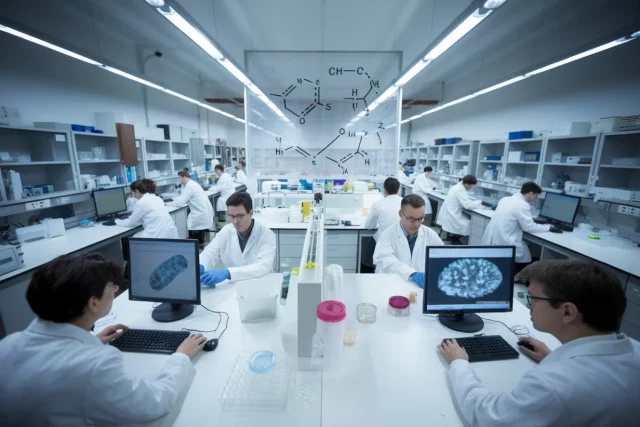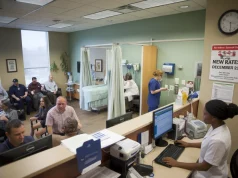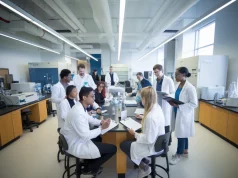Hypothetical life forms composed of reverse chiral molecules, known as mirror bacteria, may pose extreme biological risks to public health and the environment.
a breakthrough concept with colossal dangers
Mirror bacteria, although currently nonexistent, are based on theoretical advancements in synthetic biology. These organisms would be made up of reversed molecules, where the natural chirality of proteins and sugars is replaced by an opposite configuration. While such inverted molecules have been produced in laboratories on a small scale for specific studies, assembling them into a living organism remains a significant scientific challenge.
The rapid progress in synthetic biology makes this prospect plausible in the medium to long term, fueling concerns. Researchers fear that these bacteria could adapt to natural environments by exploiting non-chiral nutrients like glycerol and spread without natural regulation.
“The potential risks exceed our current management capabilities,” the report warns, highlighting the urgency of addressing these challenges.
invisible threats to immune systems
The unique structure of mirror bacteria would allow them to evade natural defenses in living organisms. They would be invisible to the human immune system and invulnerable to microbial predators such as phages and protists. This biological barrier could lead to uncontrolled proliferation in ecosystems, disrupting natural balances and posing major public health challenges.
calling for a moratorium and ethical debate
Faced with these risks, researchers are calling for an immediate moratorium on research aimed at creating mirror bacteria. They also urge funding institutions to suspend support for these projects until sufficient safety assurances can be provided.
- A rigorous ethical and scientific framework is needed
- An international debate is necessary to assess the implications of these technologies
- Clear rules must be established to avoid potentially dangerous uses
The report emphasizes the need for a robust framework guiding such work. An international discussion is demanded to evaluate technological implications and set clear guidelines to prevent any hazardous applications.
promising applications under conditions
Despite the risks, researchers acknowledge the potential of mirror molecules for medical applications. These molecules could be used to design treatments resistant to enzymatic degradation processes due to their inability to interact with natural biological mechanisms. They offer innovative solutions for complex pathologies where immune responses often limit conventional therapy effectiveness.
- Dissociate therapeutic research from creating entire inverted organisms
- Ensure advances occur within a safe and responsible framework
The signatories stress separating therapeutic research from efforts creating whole inverted organisms.
a call for global reflection
This collective stance underscores the urgency of global reflection on imposing limits on high-risk scientific research. “We must ensure that advances in synthetic biology unfold within a secure and responsible framework without compromising ecological balance or human health,” concludes the report.


















